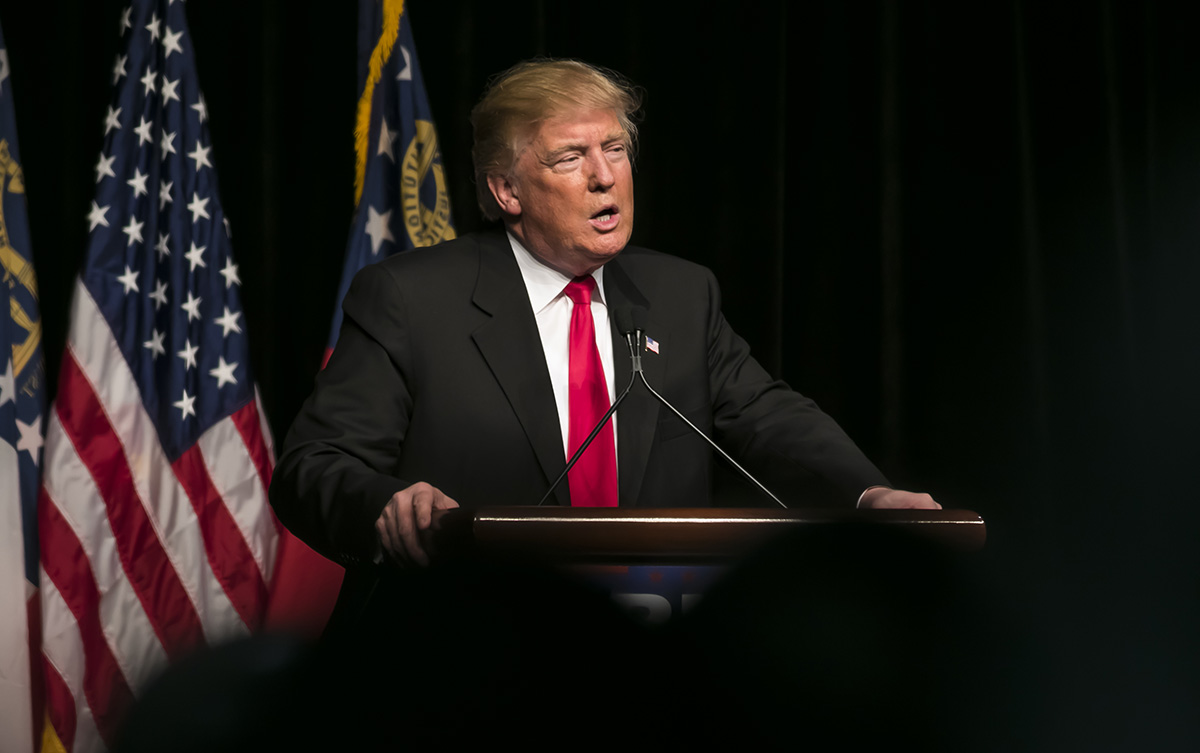National
Monkeypox being spread through sex, not brief skin-to-skin contact: experts
Health experts weigh declaring virus an STD

Amid fears monkeypox would spread at an increased rate at the end of summer as gay men gather in close quarters for dance parties and other celebrations, health experts are starting to emphasize that the current outbreak isn’t spreading through minimal skin-to-skin contact, such as brushing up against a fellow shirtless dance partner, but rather through sexual activity and overwhelmingly among men who have sex with men.
With reported cases of monkeypox in the United States this week reaching 15,505, according to data from the Centers for Disease Control, a number of health experts who spoke to the Blade talked about outright declaring monkeypox a sexually transmitted disease as part of this messaging — although they acknowledge such a label would have pros and cons.
Juan Carlos Loubriel, senior director of community health at the D.C.-based Whitman-Walker Health, was among the health experts making the distinction between the negligible risks of transmitting monkeypox through brief skin-to-skin contact as opposed to sexual activity.
“I’ll say that we need to provide the real facts to our community that indicates right now that the majority of the cases are sexually transmitted, right?” Loubriel said. “So transmission is not occurring by casual touch, right? That’s what we know as of today … So the majority of the cases [are] by prolonged skin-to-skin contact, and during sex there is a lot of skin-to-skin contact.”
As health experts at large are beginning to make a distinction in how the disease is transmitted, the Biden administration has also taken up messaging that downplays the risk of monkeypox transmission through minimal skin-to-skin contact.
Demetre Daskalakis, who is the face of the LGBTQ outreach for the Biden administration as deputy coordinator of the White House monkeypox task force, made colorful remarks Friday during a conference call with reporters downplaying the risk of contracting monkeypox through brief contact, quoting a senior policy adviser at the CDC who has studied LGBTQ health issues.
“I think I’m going to quote my friend Robbie Goldstein that sex involves friction, and friction seems to be how this happens,” Daskalakis said. “So, I think, that from the perspective of events, the real risk at an event is low. Of course, you have to gauge that risk based on what you’re doing, so if there’s a lot of clothes out dancing and friction, that could be a mechanism of transmission, but just brushing by someone, I’ve said this many times before, just brushing by someone is probably low or no risk.”
Asked by the Blade during the call about any consideration on declaring monkeypox a sexually transmitted disease, Daskalakis said it’s “really important that the decision around monkeypox and whether it’s designated happen thoughtfully from the perspective of other implications.”
“What’s really important from the perspective of our communication on the ground is that our harm reduction and safer sex guidance really does mention the importance of sexual transmission or the associated transmission of the virus, and also provides guidance necessary, like reminding people that condoms may have a role — not necessarily the full role — in preventing monkeypox, but also reminds folks that skin-to-skin contact in the context of sex can be really a part of how transmission occurs,” he said.
The messaging is consistent with new studies finding cases of monkeypox are overwhelmingly the result of sexual activity. According to a recent report by NBC News, an increasing amount of scientific evidence — such three studies published in peer-reviewed journals, as well as reports from national, regional, and global health authorities — has indicated “experts may have framed monkeypox’s typical transmission route precisely backward.”
“[A]n expanding cadre of experts has come to believe that sex between men itself — both anal as well as oral intercourse — is likely the main driver of global monkeypox transmission,” the NBC News report says. “The skin contact that comes with sex, these experts say, is probably much less of a risk factor.”
With evidence the monkeypox outbreak is overwhelmingly being transmitted through sexual activity and risks from skin-to-skin contact virtually non-existent, experts say discussion on whether or not to label the virus as a sexually transmitted disease are ongoing and controversial.
On one hand, designating monkeypox as a sexually transmitted disease would give the public a clearer idea about the way it’s being transmitted to allay concerns and enable the public to take appropriate precautions. On the other hand, as seen during the height of HIV/AIDS crisis, an emphasis on monkeypox being transmitted among men who have sex with men may have the effect of stigmatizing the community (and the sexual activity) as being responsible for the outbreak.
Loubriel said the issue of whether or not monkeypox should be messaged more as a sexually transmitted disease is “a very good question and also a very big debate around public health, even within the public health sector.”
“The only reason we cannot say it is just sexually transmitted is because we know as a fact that it can be spread by other various avenues like touching clothing, bedding with an infected person or towels being used by someone with monkeypox, potentially contact with respiratory secretions,” Loubriel added. “So that is why it’s probably not been named as a sexually transmitted infection.”
Joseph Lee, a professor of health education at East Carolina University who studies health inequities among LGBTQ people, said there’s “real tension” in finding the right messaging, which he said would strike a balance between being factual while not being stigmatic of the marginalized community affected by monkeypox.
“We see when we have messaging that goes to the general public…that messaging about how a particular group is doing worse triggers negative stereotypes and makes people feel less at risk than they are,” Lee said. “And really importantly, it makes the group at the worst end of that problem feel sometimes like they’re feeling fatalistic or they can’t do anything to protect themselves. You almost feel like you have to give up and you’re just going to get it anyway because the messaging is so clear, how much it’s impacting your community.”
Lee, however, praised communications on monkeypox from the Centers for Disease Control & Prevention, saying the agency has “very useful guidance about promoting equity in monkeypox communication that I actually really like.”
Key points in the guidance, Lee said, is messaging that monkeypox can affect anyone, while going through some of the ways the virus is being transmitted and ways the public can protect itself. The guidance, Lee said, follows the right strategy of articulating a message to the general public, then adding more specific messages about protection against the disease and risk to the communities most vulnerable.
“That’s sort of their big picture strategy that I think is actually the right strategy,” Lee concluded. “How well everyone’s implementing it across the country in our messy, somewhat broken public health system is another question.”
National
House Republicans propose steep cuts in federal AIDS budget
Advocacy groups say move would eliminate ‘Ending HIV Epidemic’ initiative

The Republican-controlled U.S. House Subcommittee on Labor, Health, and Human Services, Education, and Related Agencies approved a spending bill on June 26 that calls for cutting at least $419 million from federal AIDS programs that AIDS activists say would have a devastating impact on efforts to greatly reduce the number of new HIV infections by 2030.
The subcommittee’s proposed bill, which includes billions of dollars in cuts in a wide range of other federal health, education, and human services related programs, is scheduled to be considered by the full House Appropriations Committee on July 10. Officials with AIDS advocacy groups say they are hopeful that the full committee, like last year, will refuse to approve the proposed cuts in the AIDS budget.
The proposed GOP cuts would eliminate $214 million from the U.S. Centers for Disease Control and Prevention’s HIV prevention programs, $190 million from the Ryan White HIV/AIDS Program, and $15 million from the Department of Health and Human Services Secretary’s Minority HIV/AIDS Program.
Activists say the impact of those cuts would kill the federal government’s Ending the HIV Epidemic initiative, which among other things, calls for reducing the number of new HIV infections in the U.S. by 75 percent by 2025 and by 90 percent by 2030. The activists point out that ironically the Ending the HIV Epidemic initiative was launched during the administration of President Donald Trump.
“Instead of providing new investments in ending HIV by increasing funding for testing, prevention programs, such as PrEP, and life-saving care and treatment, House Republicans are again choosing to go through a worthless exercise of cutting programs that the American people depend on and will never pass,” said Carl Schmid, executive director of the HIV + Hepatitis Policy Institute.
“While we vigorously fight these cuts, we look forward to working with the entire Congress in a bipartisan fashion on spending bills that can actually become law,” Schmid said in a statement.
Schmid noted that the bill also includes provisions known as “policy riders” that would take away rights and protections from women, such as access to birth control and abortion, and for minorities, including LGBTQ people.
According to a statement released by the office of Rep. Rosa DeLauro (D-Conn.), who is the ranking minority member of the House Appropriations Committee, one of the policy riders would “block the Biden administration’s policies to ensure nondiscrimination on the basis of gender identity and sexual orientation.’ The statement says another policy rider would “prevent policies or programs intended to promote diversity, equality, or inclusion.”
Most political observers believe the Democratic-controlled U.S. Senate would also kill the GOP proposed policy riders and cuts in the AIDS budget if the full Republican-controlled House were to approve the budget bill passed by the appropriations subcommittee.
Rep, Tom Cole (R-Okla.), who serves as chair of the full House Appropriations Committee, released a statement on June 27 defending the subcommittee’s bill and its proposed spending cuts. “The bill provides appropriate and fiscally responsible funding to ensure these departments can continue to perform their core missions while also acknowledging the fiscal realities facing our nation,” he said.
“Importantly, the bill pushes back on the Biden administration’s out-of-touch progressive policy agenda, preventing this White House from finalizing or implementing controversial rules or executive orders,” Cole said in his statement. “It also preserves long standing bipartisan policy provisions protecting the right to life.”
U.S. Supreme Court
Concern over marriage equality in US grows two decades after first Mass. same-sex weddings
Gay and lesbian couples began to marry in Bay State in 2004

Two decades after Massachusetts became the first state to legalize same-sex marriage, a new study reveals both significant progress and ongoing challenges for married LGBTQ couples in the U.S., with a growing sense of insecurity about the future of their rights.
The Williams Institute at UCLA School of Law surveyed 484 married same-sex couples from all 50 states and D.C. The study, released Monday, marks the 20th anniversary of legal same-sex marriage in the U.S.
Researchers found that 93 percent of respondents cited love as a primary reason for marrying, with 75 percent also mentioning legal protections. Over 83 percent reported positive changes in their sense of security, and 74.6 percent noted improved life satisfaction since marrying.
However, the study also highlighted persistent discrimination and growing concerns about the future. About 11 percent of couples who had a wedding reported facing prejudice during the planning process.
Alarmingly, nearly 80 percent of respondents expressed concern about the potential overturning of the 2015 Obergefell v. Hodges decision, which legalized same-sex marriage nationwide. This anxiety has been exacerbated by initiatives like Project 2025, a conservative policy blueprint that some fear could roll back LGBTQ rights if implemented.
The possibility of a former President Donald Trump victory in the upcoming election has further intensified these concerns. Many respondents cited Trump’s previous U.S. Supreme Court appointments and his statements on LGBTQ issues as reasons for their apprehension. One participant stated, “The thought of another Trump presidency keeps me up at night. We’ve come so far, but it feels like our rights could be stripped away at any moment.”
The current political climate has 29 percent of respondents considering moving to another state, with 52.9 percent citing socio-political concerns as a primary reason. This reflects a growing sense of insecurity among LGBTQ couples about their rights and freedoms.
Brad Sears, founding executive director of the Williams Institute, noted, “The data clearly show that marriage equality has had a profound positive impact on same-sex couples and their families. However, it also reveals ongoing challenges and serious concerns about the future of these rights in light of current political trends and the upcoming election.”
Christy Mallory, legal director at the Williams Institute and lead author of the study, added, “This research provides crucial insights into the lived experiences of same-sex couples two decades after marriage equality began in the U.S. The high level of concern about potential loss of rights underscores the continued importance of legal protections and public support for LGBTQ+ equality.”
The study found that 30 percent of surveyed couples have children, with 58.1 percent of those parents reporting that marriage provided more stability for their families. However, many of these families now worry about the security of their legal status in the face of potential policy changes and shifting political landscapes.
As the nation reflects on two decades of marriage equality, the study underscores both the transformative power of legal recognition and the ongoing need for vigilance in protecting LGBTQ+ rights. The findings highlight the complex reality faced by same-sex couples in America today: Celebrating hard-won progress while grappling with uncertainty about the future, particularly in light of upcoming political events and potential shifts in leadership.
State Department
State Department hosts meeting on LGBTQ rights and foreign policy
Event took place before Pride Month reception

Secretary of State Antony Blinken on Thursday hosted a group of LGBTQ activists and politicians from around the world at the State Department.
The event — described as a “Convening on U.S. Foreign Policy: National Security, Inclusive Development, and the Human Rights of LGBTQI+ Persons” — took place before the State Department’s annual Pride Month reception. Participants included:
• Jessica Stern, the special U.S. envoy for the promotion of LGBTQ and intersex rights
• U.S. Ambassador to the U.N. Linda Thomas-Greenfield
• U.S. Trade Representative Katherine Tai
• U.S. Ambassador to India Eric Garcetti
• Suzanne Goldberg, senior advisor to the Under Secretary of State for Civil Security, Democracy, and Human Rights
• Under Secretary of State for Civilian Security, Democracy, and Human Rights Uzra Zeya
• U.S. Agency for International Development Senior LGBTQI+ Coordinator Jay Gilliam
• USAID Counselor Clinton D. White
• National Security Council Senior Director for Democracy and Human Rights Kelly Razzouk
• Assistant U.S. Secretary of Health Adm. Rachel Levine
• National Security Council Human Rights Director Jess Huber
• U.N. Assistant Secretary General for Human Rights Ilze Brandt Kehris
• Icelandic Ambassador to the U.S. Bergdís Ellertsdóttir
• Council for Global Equality Co-Executive Director Mark Bromley
• Outright International Senior Advisor for Global Intersex Rights Kimberly Zieselman
• Essy Adhiambo, executive director of the Institute for Equality and Non Discrimination in Kenya
• Pau González, co-chair of Hombres Trans Panamá and PFLAG-Panamá
“Forty-five years ago, thousands gathered in D.C. in what became the first national march for LGBTQI+, demanding their voices be heard,” said Thomas-Greenfield in a post to her X account that showed her speaking at the event. “We must continue to carry forward the spirit of these pioneers and fight for equal rights and dignity for all.”
Forty-five years ago, thousands gathered in DC in what became the first national march for LGBTQI+, demanding their voices be heard.
We must continue to carry forward the spirit of these pioneers and fight for equal rights and dignity for all. 🏳️🌈🏳️⚧️ pic.twitter.com/oph2Ahmfhq
— Ambassador Linda Thomas-Greenfield (@USAmbUN) June 28, 2024
President Joe Biden in 2021 signed a memo that committed the U.S. to promoting LGBTQ and intersex rights abroad as part of his administration’s overall foreign policy.
“LGBTQI+ rights are human rights,” said Blinken. “Our government has a responsibility to defend them, to promote them — here and everywhere.”
Blinken noted consensual same-sex sexual relations remain criminalized in 64 countries, with the death penalty in 11 of them.
He specifically highlighted Uganda’s Anti-Homosexuality Act and Hungarian Prime Minister Viktor Orbán’s government’s “smearing scapegoating, stigmatizing LGBTQI+ persons — vilifying them with degrading labels, denying them equal rights, normalizing violence against them.” (Gay U.S. Ambassador to Hungary David Pressman this month marched in the annual Budapest Pride parade.)
Blinken noted Iraqi MPs earlier this year “passed legislation that punishes same-sex relations with up to 15 years in prison.” He also pointed out that Indonesian lawmakers approved a new criminal code banning extramarital sex.
“In a nation where same-sex couples cannot marry, these laws effectively make all same-sex conduct illegal and they undermine privacy for all Indonesians,” said Blinken.
“We’re defending and promoting LGBTQI+ rights around the world,” he said.
Blinken noted seven countries — Barbados, St. Kitts and Nevis, Antigua and Barbuda, Dominica, Namibia, Singapore, the Cook Islands — have decriminalized consensual same-sex sexual relations over the last two years. He also highlighted Greece, Liechtenstein, and Thailand this year extended marriage rights to same-sex couples, and other countries are banning so-called “conversion therapy.”
“These achievements are possible because of incredibly courageous human rights defenders and government partners on the ground, but I believe America’s support is indispensable,” said Blinken. “When we engage — sometimes publicly, sometimes privately, sometimes both — when we share our own knowledge and experience, we can and we do achieve change.”
Blinken also announced the U.S. now considers sexual orientation and gender identity are part of the International Covenant on Civil and Political Rights that took effect in 1976.
“This is one of the key treaties committing nations to upholding universal rights,” he said.
“In our regular reporting to the council on human rights, we will continue to include incidents of discrimination or abuse committed against LGBTQI+ persons, now with the clear framework of this well-supported interpretation,” added Blinken. “That will further empower our efforts.”
Blinken reiterated this point and the Biden-Harris administration’s commitment to the promotion of LGBTQ and intersex rights abroad when he spoke at the State Department’s Pride Month event.
“Defending, promoting LGBTQI+ rights globally is the right thing to do, but beyond that, it’s the smart and necessary thing to do for our country, for our national security, for our well-being,” he said.
-

 Canada2 days ago
Canada2 days agoToronto Pride parade cancelled after pro-Palestinian protesters disrupt it
-

 Theater5 days ago
Theater5 days agoStephen Mark Lukas makes sublime turn in ‘Funny Girl’
-

 Baltimore4 days ago
Baltimore4 days agoDespite record crowds, Baltimore Pride’s LGBTQ critics say organizers dropped the ball
-

 Sports4 days ago
Sports4 days agoHaters troll official Olympics Instagram for celebrating gay athlete and boyfriend











